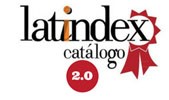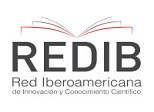Cultura Educativa en el Aprendizaje del Inglés como Lengua Extranjera: Perspectivas desde Ecuador y Hungría
DOI:
https://doi.org/10.69890/hallazgos21.v9i2.659Palabras clave:
educación intercultural, enseñanza de idiomas, inglés como lengua extranjera, educación superior, análisis comparativoResumen
Esta investigación presenta una comparación entre las percepciones de la cultura educativa en Ecuador y Hungría y su influencia en el aprendizaje del inglés como lengua extranjera. A través de un análisis cualitativo que emplea plantillas de estilo organizativo, análisis comparativo constante y el software MAXQDA, se examinan las actitudes, comportamientos y enfoques característicos de estas culturas educativas y su impacto en el aprendizaje del inglés como lengua extranjera. Los sujetos de estudio abarcaron tanto profesores como estudiantes de instituciones de educación superior. En Ecuador, se destaca un enfoque colectivista, y se identifica la influencia de factores socioeconómicos en la accesibilidad a recursos para el aprendizaje del inglés como lengua extranjera. Por otro lado, en Hungría se observa un ambiente educativo más competitivo y pasivo. Estos hallazgos subrayan la necesidad de implementar estrategias de enseñanza sensibles a la cultura educativa, como el desarrollo de materiales educativos contextualizados y la promoción de estrategias previamente validadas para facilitar un ambiente inclusivo. El estudio enfatiza la importancia de considerar las diferencias culturales en la planificación educativa para mejorar tanto el éxito académico de los estudiantes de aprendizaje del inglés como lengua extranjera como su apreciación intercultural. Se recomienda una mayor reflexión sobre las implicaciones prácticas de estos hallazgos y la exploración de posibles direcciones futuras para la investigación en este campo.
Citas
Abdollahi-Guilani, M., Yasin, M. S. M., Hua, T. K., & Aghaei, K. (2012). Culture-integrated teaching for the enhancement of EFL learner tolerance. Asian Social Science, 8(6), Article 6. https://doi.org/10.5539/ass.v8n6p115
Angelis, A. D. (2022). EF English proficiency index e Inglés en Ecuador: Suposiciones inciertas del ranking internacional. Revista Andina de Educación, 5(2), Article 2. https://doi.org/10.32719/26312816.2022.5.2.11
Baleghizadeh, S., & Amiri Shayesteh, L. (2020). A content analysis of the cultural representations of three ESL grammar textbooks. Cogent Education, 7(1), 1844849. https://doi.org/10.1080/2331186X.2020.1844849
Balla, E. (2016). A general outlook of the importance of the English language in the world today. Academic Journal of Interdisciplinary Studies, 5(3 S1), 499–503. https://doi.org/10.5901/ajis.2016.v5n3s1p499
Bayyurt, Y. (2006). Non‐native English language teachers’ perspective on culture in English as a Foreign Language classrooms. Teacher Development, 10(2), 233–247. https://doi.org/10.1080/13664530600773366
Biesta, G. (2011). From learning cultures to educational cultures: Values and judgements in educational research and educational improvement. International Journal of Early Childhood, 43(3), 199–210. https://doi.org/10.1007/s13158-011-0042-x
Byram, M., & Feng, A. (2004). Culture and language learning: Teaching, research and scholarship. Language Teaching, 37(3), 149–168. https://doi.org/10.1017/S0261444804002289
Chen, C., & Stevenson, H. (1995). Culture and academic achievement: Ethnic and cross-national differences. Advances in Motivation and Achievement, 9, 119–151.
Ciocoi-Pop, M.-M. (2015). A general overview of English as a foreign language in the contemporary Romanian higher education. International Conference Knowledge-Based Organization, 21(2), 565–569. https://doi.org/10.1515/kbo-2015-0096
Crabtree, B. F., Crabtree, B. F., & Miller, W. L. (1999). Doing qualitative research. Sage.
Creswell, J. W., & Creswell, J. D. (2018). Research design: Qualitative, quantitative, and mixed methods approaches (Fifth edition). Sage.
Damar, E. A. (2013). Culture: Is it an avoidable or adorable concept in EFL settings? Procedia - Social and Behavioral Sciences, 93, 752–755. https://doi.org/10.1016/j.sbspro.2013.09.275
DeChicchis, J. (2006). Ecuador: Language situation. En Encyclopedia of Language & Linguistics (pp. 58–59). Elsevier. https://doi.org/10.1016/B0-08-044854-2/01858-7
Dörnyei, Z. (2007). Research methods in applied linguistics: Quantitative, qualitative, and mixed methodologies. Oxford University Press.
Fang, Y., & Gopinathan, S. (2009). Teachers and teaching in eastern and western schools: A critical review of cross-cultural comparative studies. En L. J. Saha & A. G. Dworkin (Eds.), International Handbook of Research on Teachers and Teaching (pp. 557–572). Springer US. https://doi.org/10.1007/978-0-387-73317-3_36
Gorsuch, G. J. (2000). EFL Educational Policies and Educational Cultures: Influences on Teachers’ Approval of Communicative Activities. TESOL Quarterly, 34(4), 675–710. https://doi.org/10.2307/3587781
Hong, E., Wan, M., & Peng, Y. (2011). Discrepancies between students’ and teachers’ perceptions of homework. Journal of Advanced Academics, 22(2), 280–308. https://doi.org/10.1177/1932202X1102200205
Jackson, T., Mackenzie, J., & Hobfoll, S. E. (2000). Chapter 9—Communal aspects of self-regulation. En M. Boekaerts, P. R. Pintrich, & M. Zeidner (Eds.), Handbook of Self-Regulation (pp. 275–300). Academic Press. https://doi.org/10.1016/B978-012109890-2/50038-X
Kauffman, J. M., Conroy, M., Gardner, R. I., & Oswald, D. (2008). Cultural Sensitivity in the Application of Behavior Principles to Education. Education and Treatment of Children, 31(2), 239–262.
Kirkpatrick, A. (2012). English as an International Language in Asia: Implications for language education. En A. Kirkpatrick & R. Sussex (Eds.), English as an International Language in Asia: Implications for Language Education (pp. 29–44). Springer Netherlands. https://doi.org/10.1007/978-94-007-4578-0_3
Kuckartz, U., & Rädiker, S. (2019). Analyzing qualitative data with MAXQDA: Text, audio, and video. Springer International Publishing. https://doi.org/10.1007/978-3-030-15671-8
Lee, C. D. (2017). Integrating research on how people learn and learning across settings as a window of opportunity to address inequality in educational processes and outcomes. Review of Research in Education, 41, 88–111.
Liu, X., Liu, S., Lee, S., & Magjuka, R. (2010). Cultural differences in online learning: International student perceptions. Educational Technology & Society, 13, 177–188.
Mappiasse, S. S., & Sihes, A. J. B. (2014). Evaluation of English as a foreign language and its curriculum in Indonesia: A review. English Language Teaching, 7(10), 113–122.
McInerney, D. M. (2008). The motivational roles of cultural differences and cultural identity in self-regulated learning. En D. H. Schunk & B. J. Zimmerman (Eds.), Motivation and Self-regulated Learning: Theory, Research, and Applications (pp. 369–400).
McInerney, D. M. (2011). Culture and self-regulation in educational contexts. En Handbook of Self-Regulation of Learning and Performance (1a ed.). Routledge.
Medgyes, P. (1992). The national L2 curriculum in Hungary. Annual Review of Applied Linguistics, 13, 24–36. https://doi.org/10.1017/S0267190500002373
Medgyes, P., & Nikolov, M. (2014). Research in foreign language education in Hungary (2006–2012). Language Teaching, 47(4), 504–537. https://doi.org/10.1017/S0261444814000184
Merino, S. R. P., Poveda, M. E. P., Arteaga, S. Y. B., & Poveda, M. L. P. (2019). Realidad actual de la enseñanza en inglés en la educación superior de Ecuador. Dominio de las Ciencias, 5(2), 523–539.
Miravet, L. M., & García, O. M. (2013). The role of teachers’ shared values and objectives in promoting intercultural and inclusive school cultures: A case study. International Journal of Qualitative Studies in Education, 26(10), 1373–1386. https://doi.org/10.1080/09518398.2012.731535
Moser, K., Zhu, D., Nguyen, H., & Williams, E. (2018). Teaching English language learners: A mainstream response to rural teacher preparation. International Journal of Teacher Education and Professional Development (IJTEPD), 1(1), 58–75. https://doi.org/10.4018/IJTEPD.2018010105
Nair, G., Setia, R., Mohamad, R., Abdul Kadir, Z. B., Luqman, A., Vadeveloo, T., & Ngah, H. C. (2014). Attitude, parental encouragement and perception of the importance of English in English language learning. Asian Social Science, 10(3), p1. https://doi.org/10.5539/ass.v10n3p1
Petzold, R., & Berns, M. (2000). Catching up with Europe: Speakers and functions of English in Hungary. World Englishes, 19(1), 113–124. https://doi.org/10.1111/1467-971X.00159
Quezada-Sarmiento, P. A., Zuniga, A., Toro, V., Camacho, G., Pinza, E., Benitez, C., Vargas, A., Paredes, M., & Morocho, E. (2017). Teachers’ factors that influence the English language teaching-learning process in Ecuadorian high schools in the context of e-education and society. 2017 12th Iberian Conference on Information Systems and Technologies (CISTI), 1–7. https://doi.org/10.23919/CISTI.2017.7975819
Seidlhofer, B. (2005). English as a lingua franca. ELT Journal, 59(4), 339–341. https://doi.org/10.1093/elt/cci064
Simpson, S. T. (2008). Western EFL teachers and east-west classroom-culture conflicts. RELC Journal, 39(3), 381–394. https://doi.org/10.1177/0033688208096847
Thomas, R. M. (2001). Education: Cultural and religious concepts. En N. J. Smelser & P. B. Baltes (Eds.), International Encyclopedia of the Social & Behavioral Sciences (pp. 4197–4200). Pergamon. https://doi.org/10.1016/B0-08-043076-7/02333-0
Tseng, C.-J., & Chao, C.-T. (2012). Teaching culture in Taiwan’s EFL classroom. Procedia - Social and Behavioral Sciences, 47, 1843–1846. https://doi.org/10.1016/j.sbspro.2012.06.910
Wallace, M. J. (1997). Action research for language teachers. Cambridge University Press.
Watkins, D. (2000). Learning and teaching: A cross-cultural perspective. School Leadership & Management, 20(2), 161–173. https:/
Publicado
Cómo citar
Número
Sección
Licencia
Los artículos enviados a la Revista Científica Hallazgos21 deberán ser totalmente originales e inéditos.
Los autores son los responsables de los textos y las imágenes incluidas en los artículos y no necesariamente reflejan el pensamiento de la editorial o de la Pontificia Universidad Católica del Ecuador, Sede Esmeraldas (PUCESE).
Los autores disponen cederle a la Revista Científica Hallazgos21 todos los derechos inherentes para la edición, publicación y distribución o divulgación del mismo.
Se autoriza a las revistas firmantes de los acuerdos de Encuentros de Revistas Latinoamericanas para reproducir en parte o totalmente los artículos con la sola mención de la fuente claramente señalada.







